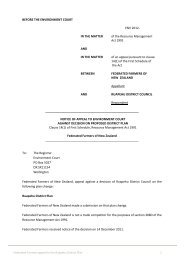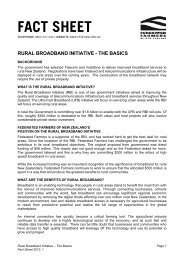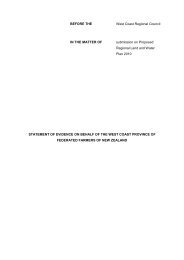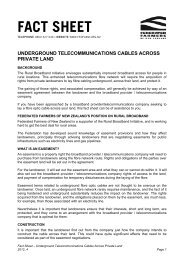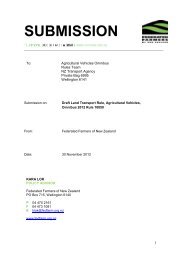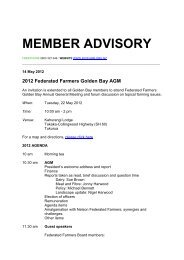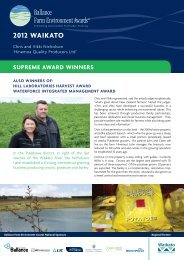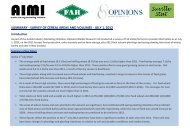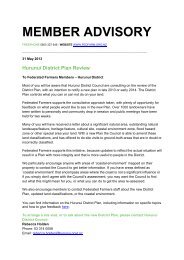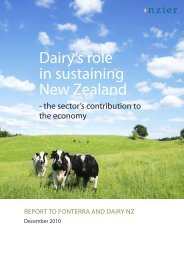NZIER report on compensation for transmission infrastructure
NZIER report on compensation for transmission infrastructure
NZIER report on compensation for transmission infrastructure
Create successful ePaper yourself
Turn your PDF publications into a flip-book with our unique Google optimized e-Paper software.
in<strong>for</strong>mati<strong>on</strong> and the method by which easements are valued, suggest that the prices<br />
paid <strong>for</strong> easements may not always be equivalent to easement costs.<br />
2.3.3 How compulsory purchase changes negotiati<strong>on</strong>s<br />
It might be argued that that if landowners reach agreement <strong>on</strong> compensati<strong>on</strong> with<br />
Transpower they should just accept the c<strong>on</strong>sequences. Landowners‟ percepti<strong>on</strong>s that<br />
compensati<strong>on</strong> does not cover the full cost of easements, or their realisati<strong>on</strong> later<br />
(with in<strong>for</strong>mati<strong>on</strong> about the costs of working with easements obtained after they are<br />
created) that that decisi<strong>on</strong> was less than optimal, is no different from “post-purchase<br />
regret”, that can arise in any number of transacti<strong>on</strong>s. While similar situati<strong>on</strong>s occur in<br />
other market transacti<strong>on</strong>s without redress, the element of compulsi<strong>on</strong> means that<br />
landowners cannot simply decline the invitati<strong>on</strong> to negotiate. Additi<strong>on</strong>ally, the<br />
in<strong>for</strong>mati<strong>on</strong> asymmetry between landowner and Transpower with its knowledge of<br />
previous settlements, gives easements a distinct characteristic.<br />
Sale and purchase transacti<strong>on</strong>s and land valuati<strong>on</strong> are usually based <strong>on</strong> there being<br />
a willing buyer and willing seller who reach mutual agreement <strong>on</strong> the price. In the<br />
case of easements <strong>for</strong> transmissi<strong>on</strong> facilities Transpower has the legal opti<strong>on</strong> of<br />
pushing <strong>for</strong> compulsory purchase which, although it prefers not to use it, can still<br />
change the dynamic of the negotiati<strong>on</strong>, as illustrated in Figure 2 below.<br />
If a landowner has a value in mind <strong>for</strong> compensati<strong>on</strong> <strong>for</strong> granting the easement and<br />
bearing the <strong>on</strong>-going inc<strong>on</strong>venience of accommodating transmissi<strong>on</strong> facilities, this<br />
might be termed the “hold-out price”. The landowner‟s expectati<strong>on</strong> of the price<br />
realised through compulsory purchase – the “back-stop price” – will be below the<br />
hold-out price (otherwise the landowner will not hold out but settle immediately). The<br />
landowner‟s interest in pursuing the hold-out price will then depend <strong>on</strong> the margin of<br />
hold-out over expected back-stop price, and the transacti<strong>on</strong> costs incurred by the<br />
landowner in the negotiati<strong>on</strong>s.<br />
<str<strong>on</strong>g>NZIER</str<strong>on</strong>g> – Compensati<strong>on</strong> <strong>for</strong> transmissi<strong>on</strong> <strong>infrastructure</strong> 14



